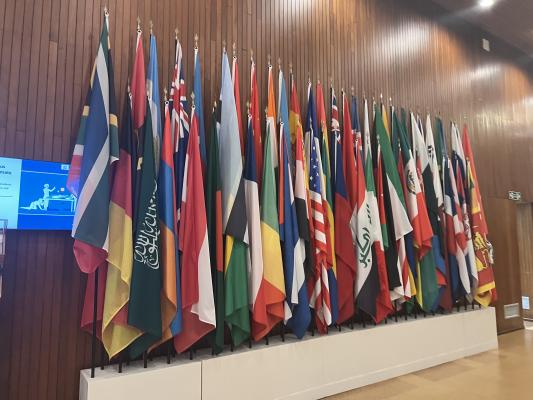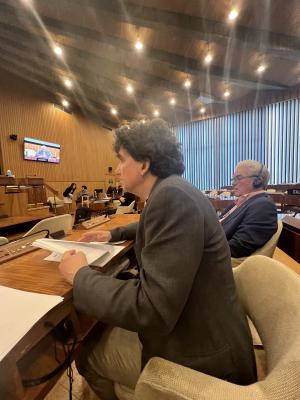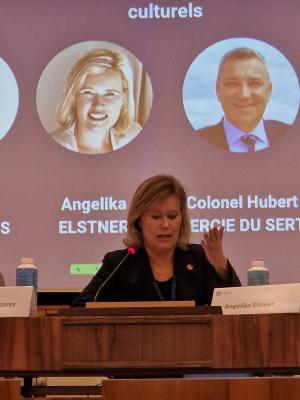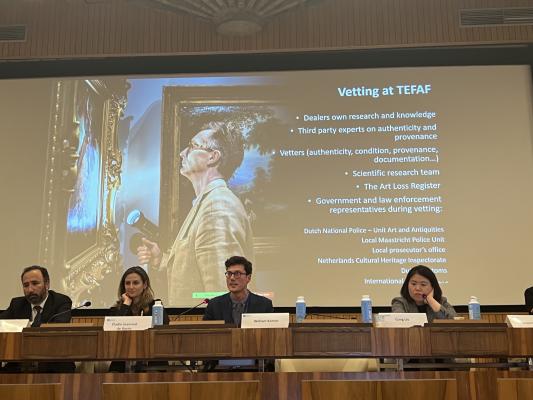ILAB advocacy at UNESCO on behalf of the international rare book trade
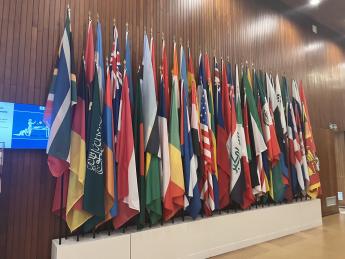
UNESCO (United Nations Educational, Scientific, and Cultural Organization) is known for much more than its World Heritage Site program. It oversees a wide range of global initiatives and programs aimed at fostering international collaboration in education, science, culture, and communication, including various programmes combatting the illicit trade in cultural property.
UNESCO's work is relevant to 193 member states of the United Nations. All ILAB members are among these.
Since 2022, ILAB has together with the art market community participated in UNESCO consultations on revising the "International Code of Ethics for Dealers in Cultural Property", whose most recent version dates back to 1999. ILAB understands that changes of the Code are needed to reflect modern developments, including the rise of the Internet and evolving sales channels.
While ILAB and representatives of the wider art market support the work of UNESCO and its core principles, the art market community has raised objections to some of the proposed revisions, which could, potentially, unduly hinder the legitimate trade in cultural objects.
Increasingly strict provenance requirements have already led to significant obstacles in the daily work of many antiquarian booksellers worldwide.
The results of the consultations with the art market were published in 2023 under the following link: >> ACCESS DOCUMENT HERE
This revision process is still ongoing and the final paper not yet published.
Ongoing, active communication between ILAB and UNESCO is important to represent the rare book trade's needs and advocate for balanced legal and ethical principles for legitimately traded objects of art and in ILAB's case, rare books and antiquarian material.
In June 2024, ILAB organised its 3rd international symposium, taking place at the Institut National de l'Histoire de l'Art in Paris, and was able to invite a representative of UNESCO.
Louise Malecot, Associate Programme specialist at the Movable Heritage and Museums Unit, presented "UNESCO’s tools for protecting cultural heritage and combating illicit trade", providing an insightful presentation on UNESCO’s rationale for its policies and its initiatives to combat illicit trade and protect cultural heritage. This talk, delivered in French, is available with English subtitles on ILAB’s YouTube channel and highly recommended for further understanding >> LINK
On June 14, UNESCO invited representatives of the art market, notably those who participated in the 2022 consultations, including ILAB, specialists from various organizations involved in the protection of cultural heritage, and representatives of all UNESCO Member States to a workshop at the Paris Headquarters.
The workshop focussed on specific case studies to share good practices and discuss challenges related to the exercise of due diligence. The presentations were followed by a discussion with the participants on the principles pertaining to cooperation with the country of origin or export and the national agencies, as well as the procedures for dealers to adhere to the Code and for investigations of violations of its principles.
ILAB's Executive Secretary Angelika Elstner was invited to present the international rare book trade and share examples of due diligence and security procedures in the rare book trade.
This invitation marked a significant milestone in ILAB’s advocacy efforts.
ILAB was able to present best practices within the rare book trade while addressing concerns about unfair portrayals of the art and antiquarian book trade and disproportionate legal requirements.
Angelika Elstner was supported by then ILAB President Mario Giupponi and ILAB Treasurer Robert Frew as well as the President of the German antiquarian booksellers' association, Markus Brandis.
ILAB advocates for dialogue and mutual understanding with institutions such as UNESCO. By engaging constructively with UNESCO, ILAB aims to ensure that the rare book trade is recognized as a legitimate and historically important part of the cultural economy.
ILAB’s collaboration with UNESCO over the past two years represents a significant step forward in ensuring that the interests of the international rare book trade are represented in global discussions on cultural heritage. Continued engagement, advocacy, and public relations efforts at this level will be critical to addressing challenges and fostering a balanced approach to cultural property legislation.
Text and images: Angelika Elstner

